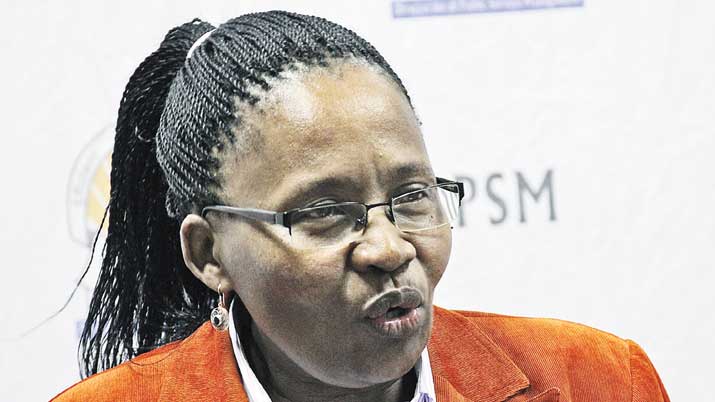Poor work ethic by public offi cers issaid to be one of the major causes ofcorruption in the country, accordingto the information from the Directorate onCorruption and Economic Crime (DCEC).The DCEC Public Relations Offi cer,Lentswe Motshoganetsi told The Gazettein an interview that “the poor work ethic, isusually a result of lack of integrity on the officers.” Motshoganetsi noted that this is alsofuelled by the fact that the general publicdoes not understand their rights in terms ofgovernment procedures and acquiring services.
At times, he said, the public offi cerscan cause unnecessary delays when assistingmembers of the public, and some would getfed up with these delays and end up optingto bribe.“Members of the public should alwaysenforce their rights,” he advised. The otherfactor that leads to corruption, he said, is theweakened supervision in public offi ces; junioroffi cers tend to do things the way theywant and end up receiving bribes.In the light of this, he stated that his directoratetogether with the Directorate of Public Service Management (DPSM), went ona benchmarking exercise in 2012, which itsmain aim was to instil integrity on publicservants and weed out those who lack integrity.
Commenting on the corruption audits,the DCEC spokesperson told The Gazettethat they have in 2012 completed a studyon employment of graduates and that theylater furnished the DPSM with some recommendations.“85 per cent of the recommendationshave been implemented,” Motshoganetsisaid, adding that there are stillcomplainants about the recruitment processof graduates at the DPSM.The Assistant Minister, Ministry of PresidentialAffairs and Public Administration,Dr Gloria Somolekae noted at the launchof the DPSM Anti-Corruption Policy Statementlast Friday that the Human Resource(HR) division is the centre of corruption ingovernment departments.She said this corruption manifests itselfin such forms as bribery, embezzlement ofpublic funds, fraud and nepotism amongothers; some practices such as poor workethic and poor work supervision may alsoserve as a platform for corruption, she added.
“These issues centre on the HR whichis the most competitive resource in drivingthe economy. People get rewards of sexualfavours, improper appointments and freeparticipation in businesses,” she said.She advised that all public offi cers havea duty to protect public goods and services,adding that, “a public service that is inefficient and ineffective, and a public servicethat is littered with corrupt practice can stifle economic growth and prosperity.”Somolekae went on to state that the Directoratehas institutionalised the PublicService Charter Principles in both Englishand Setswana which are published everyFriday in the Botswana daily newspaperfor consumption by both the public and thepublic servants at large.DPSM has also developed the Public ServiceAnti-Corruption Strategy which is currentlybeing implemented and monitoredacross the public, according to Somolekae.

